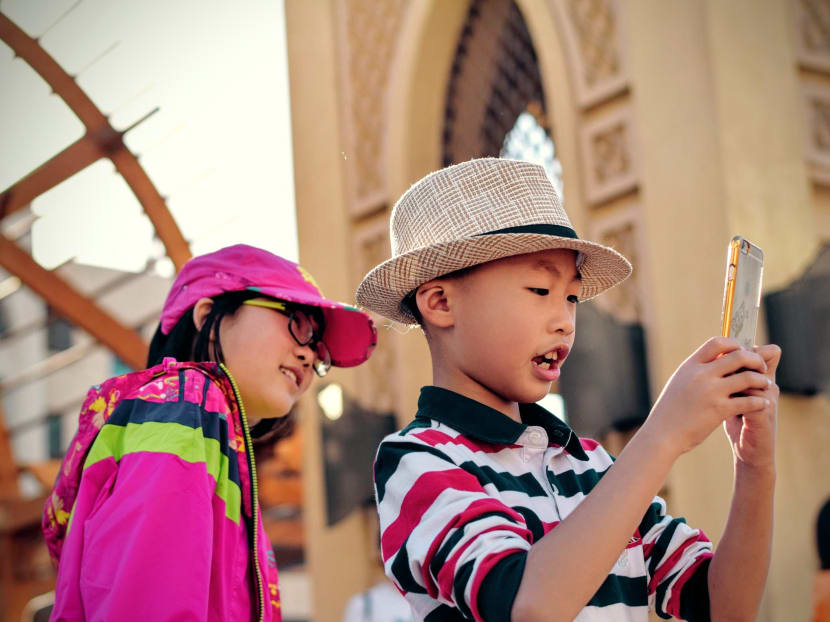S'porean children get first Internet device at age 8, among youngest worldwide: Google
SINGAPORE — Eight years old — that’s the average age children here get their first Internet-connected device.

A Google survey showed that teachers here are more worried than parents about cyber bullying, while parents are most concerned about their children’s privacy and security online.
SINGAPORE — Eight years old — that’s the average age children here get their first Internet-connected device.
This makes them among the youngest in the world to go online, two years earlier than the global average of 10 years old, a survey by Google revealed.
The survey findings also showed that while teachers here are more worried than parents about cyber bullying, parents are most concerned about their children’s privacy and security online, said the Internet giant in a press release on Monday (March 18).
Google surveyed parents and teachers in 14 countries such as Britain, India, Japan, the United States and Vietnam to get their thoughts on digital literacy and habits among young children.
In Singapore, 400 parents with at least one child under 18 years old living at home took part in the survey last December, as well as 200 teachers who have taught students between the ages of 6 and 18 in the past year.
Google said that the survey reveals the “need for collaboration in schools and homes” when it comes to educating children about online safety.
This was also reflected in the differences between what teachers and parents listed as their key areas of concern.

Parents’ concerns:
Privacy and security
Oversharing of information
Inappropriate content
Cyber bullying
Teachers’ concerns:
Preventing cyber bullying
Privacy and security
Inappropriate content
Information sharing
Parents and teachers here agreed on one thing, though — more can be done both at home and in schools to teach children how to be safer online.
However, only half of the parents interviewed were satisfied with schools’ education on online safety, while about three-quarters of the teachers said that parents are not doing enough to keep their children safe on the Internet.
More worryingly, even though a majority of teachers said that online safety is now part of their school’s curriculum, almost all said that they were not well-equipped to effectively teach their students about online safety.
They added that they need more resources to do so, and most indicated that they wanted to attend online safety training or workshops, too. Eight out of 10 teachers also said that children should learn about online safety both at home and in school.
About three-quarters of the parents said that they wanted to learn the right skills through workshops or training to help keep their children safe online.
So far, Google, which has been a partner of the Media Literacy Council since 2012, has conducted nine Digital Parenting workshops reaching more than 1,000 families.
Mr Lucian Teo, Google’s user education and outreach manager for trust and safety, said: “With support from parents and teachers, we hope to work with the community to educate children on the risks and enable them to become confident navigators in the online world.”








